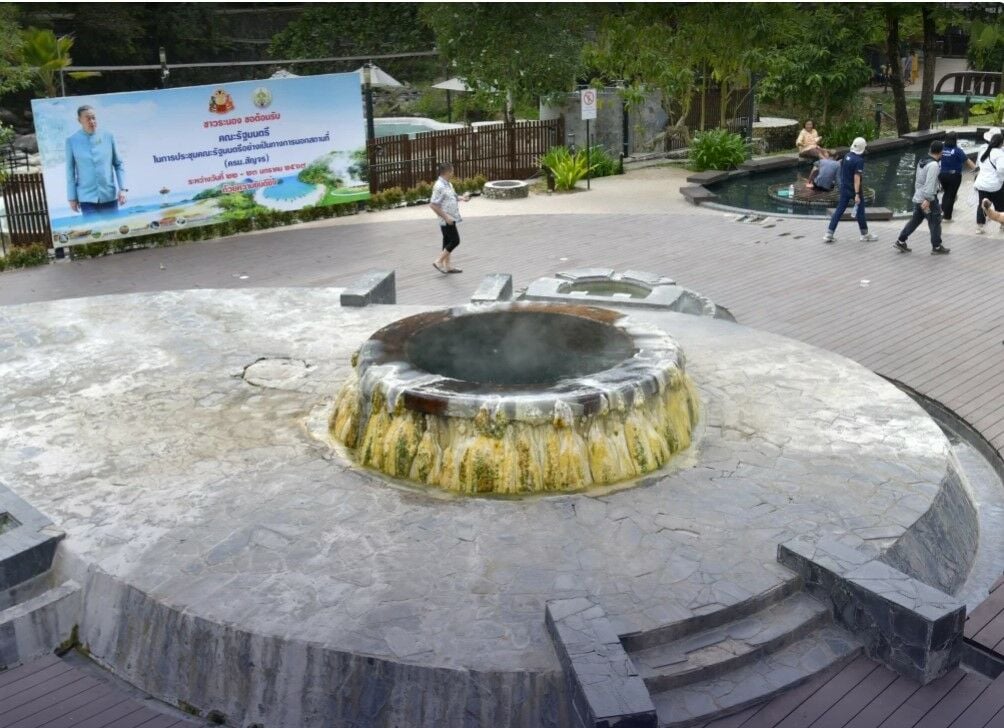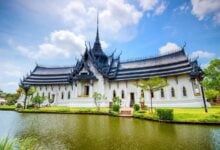Thailand’s hot springs used as tourism strategy

The Ministry of Tourism and Sports unleashed a grand plan to catapult the nation’s hot springs into the global spotlight. Thai hot springs are set to rival European spa towns and Japanese Onsen havens, creating a hotbed for international travellers and an advantage for local economies.
Tourism and Sports Minister Sudawan Wangsuphakijkosol revealed the ambitious scheme, aiming to transform Thailand’s hot springs into top-tier tourist destinations. The urgency behind the initiative is propelled by the necessity to compete with the well-established European and Japanese hot spring havens, which boast over 1,000 years of development.
“We’re racing against time to meet the ever-growing demands of tourists and consumers worldwide.”
The plan involves intricately connecting and enhancing a network of hot springs across provinces, with the ministry unveiling seven designated hot spring routes. Simultaneously, the focus is on crafting knowledge and standards for natural hot springs, perfectly aligned with the new normal standards.
This strategy aspires to set a precedent for the future of natural hot spring tourism. It goes beyond just creating tourist destinations; the plan includes promoting hot spring-related products and nurturing local personnel with expertise in health tourism services.
A recent study uncovered that Thailand boasts a staggering 118 hot springs, predominantly concentrated in the northern region (71), followed by the south (32), the central region (12), and the eastern region (2).
To fund this colossal endeavour, the Thai Hot Springs Club is set to submit a special budget request of 270 million baht to the Cabinet for approval, designating the ministry as the lead agency. The target is to have Thai hot springs operational for global service by next year, reported The Nation.
In a move set to redefine coastal provinces along the Andaman Sea, the Thai Hot Springs Club proposed a feasibility study for developing 16 hot springs in areas like Ranong, Phang Nga, Krabi, Trang, and Satun. This initiative aims to elevate local services to international standards, promoting wellness tourism under the captivating brand, Andaman Wellness Corridor.
Anticipating substantial returns, the plan foresees attracting tourists to upgraded public bath services and hot spring spa destinations. Estimates suggest potential revenue gains of up to 200 times the current income.
Latest Thailand News
Follow The Thaiger on Google News:


























